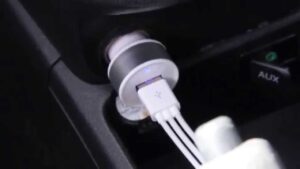Curious about how long CMOS batteries last? Well, you’re in the right place! CMOS batteries are essential components in your computer that help maintain important settings when the power is off. In this article, we’ll dive into the fascinating world of CMOS batteries and explore their lifespan. So, whether you’re a tech enthusiast or simply want to ensure your computer’s optimal performance, join us as we unravel the mysteries behind how long CMOS batteries last. Let’s get started!
How Long Do CMOS Batteries Last?
The longevity of CMOS batteries is a commonly asked question among computer users. These small, coin-shaped batteries play a critical role in powering the Complementary Metal-Oxide-Semiconductor (CMOS) memory of a computer’s motherboard. The CMOS memory stores essential system information, such as the date and time, BIOS settings, and hardware configurations. In this article, we will delve into the various factors that influence the lifespan of CMOS batteries, providing you with a comprehensive understanding of how long they typically last.
The Role of CMOS Batteries
Before we dive into the lifespan of CMOS batteries, it’s crucial to understand their significance in a computer system. CMOS batteries are primarily responsible for keeping the real-time clock (RTC) of the motherboard ticking, even when the computer is powered off or unplugged. This small but mighty battery ensures that your computer remembers the correct date and time, preventing you from having to reset these settings every time you turn on the system.
What Affects the Lifespan of CMOS Batteries?
Quality of the Battery
The quality of the CMOS battery plays a vital role in determining its lifespan. Higher quality batteries are typically more durable and designed to last longer. When purchasing a replacement battery, it is recommended to opt for a reputable brand to ensure you get a reliable, long-lasting product.
Usage Habits
The frequency and intensity of computer usage can impact the lifespan of a CMOS battery. Some factors that may affect battery life include:
- Powering the computer off and on regularly: Frequent power cycles can drain the CMOS battery over time. It is important to strike a balance between turning off your computer to conserve energy and allowing the battery to operate optimally.
- Extended periods of inactivity: If you leave your computer unused for long periods, the CMOS battery may discharge more quickly. This is because the battery’s primary purpose is to power the real-time clock, which is constantly running, even when the system is not in use.
- Overclocking or system tweaking: Pushing your computer’s components beyond their default specifications can increase power demands, potentially affecting the lifespan of the CMOS battery.
Environmental Factors
The surrounding environment can also impact the longevity of a CMOS battery. Some environmental factors to consider include:
- Temperature: Extreme heat or cold can adversely affect battery performance. It is important to keep your computer in a well-ventilated area, away from excessive heat sources, to maintain optimal battery health.
- Humidity: High humidity levels can cause corrosion and damage to the battery contacts, leading to a shorter lifespan.
Typical Lifespan of CMOS Batteries
While there is no definitive answer to the lifespan of a CMOS battery, several factors can influence its longevity. On average, CMOS batteries can last anywhere from 3 to 10 years. However, it is essential to monitor your computer’s behavior and be aware of signs that your CMOS battery may be nearing the end of its life.
Signs of a Failing CMOS Battery
- Date and time reset: If you find that your computer consistently resets the date and time to a default value whenever you turn it on, this may indicate a failing CMOS battery.
- BIOS settings not retained: If you notice that your BIOS settings, such as boot order or hardware configurations, are not being saved after a system shutdown or restart, it could be a sign that the CMOS battery needs replacement.
- System clock lagging or inconsistent: A CMOS battery nearing the end of its life may cause the system clock to become inaccurate or lag behind the actual time.
- Error messages: Some computers may display error messages during the boot process, indicating a CMOS battery failure.
Replacing a CMOS Battery
If you experience any of the aforementioned signs, it is likely time to replace your CMOS battery. Here is a step-by-step guide on how to replace a CMOS battery:
- Power off your computer and unplug it from the power source.
- Open the computer case following the manufacturer’s instructions.
- Locate the CMOS battery on the motherboard. It is typically a small, silver coin-shaped battery.
- Carefully remove the old battery, taking note of its orientation.
- Insert the new battery in the same orientation as the old battery.
- Close the computer case and plug your computer back in.
- Power on the system and check if the date, time, and BIOS settings are retained.
In summary, CMOS batteries are essential components of a computer system, powering the CMOS memory and ensuring the accurate functioning of the real-time clock. While their lifespan can vary depending on factors such as battery quality, usage habits, and environmental conditions, CMOS batteries typically last between 3 to 10 years. By paying attention to signs of a failing CMOS battery, you can proactively replace it and avoid potential system disruptions. Remember to follow the necessary precautions and guidelines when replacing the CMOS battery to ensure a smooth replacement process.
Frequently Asked Questions
How long do CMOS batteries typically last?
CMOS batteries, also known as motherboard batteries or RTC (Real-Time Clock) batteries, provide power to maintain the system clock and store BIOS settings on the computer’s motherboard. The lifespan of a CMOS battery can vary depending on various factors:
What factors can affect the lifespan of a CMOS battery?
Several factors can influence the lifespan of a CMOS battery:
How can I check if my CMOS battery needs replacing?
If you suspect that your CMOS battery might be running low, you can check its voltage to determine if it needs to be replaced. Here’s how:
Is it possible to extend the lifespan of a CMOS battery?
While CMOS batteries will eventually run out of power and need to be replaced, there are a few steps you can take to potentially extend their lifespan:
What happens if the CMOS battery dies?
If the CMOS battery dies, it can lead to several issues, including:
Can I replace the CMOS battery myself?
Yes, replacing a CMOS battery is generally a straightforward process that can be done by most computer users. Here’s how to replace the CMOS battery:
Final Thoughts
CMOS batteries play a crucial role in maintaining the basic functions and settings of your computer’s BIOS. Despite their small size, they have a significant impact on the overall performance and reliability of your system. As for their lifespan, CMOS batteries typically last for several years. It is not uncommon for them to function effectively for three to five years, but this can vary depending on factors such as usage patterns and the quality of the battery itself. So, how long do CMOS batteries last? Generally, you can expect them to remain operational for a few years before needing replacement.


